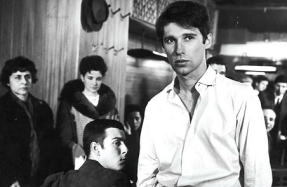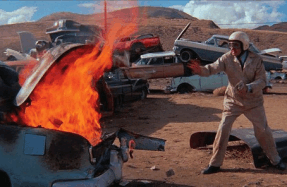
“The first step in cinematographic thought seems to me to be the utilisation of existing objects and forms which can be made to mean everything, because nature is profoundly, infinitely versatile.”
—Antonin Artaud, “Cinema and Abstraction”
It’s been ten years since Sensory Ethnography Lab cine-anthropologists Lucien Castaing-Taylor and Véréna Paravel made a quite literal splash at the 2012 Locarno Festival with their first feature-length collaboration, Leviathan, which still stands as arguably the single most impactful advancement in film language this century. “Here is a true 21st-century ethnography,” wrote Phil Coldiron in these pages, “cutting through the stories and forcing us to reconsider our mode of engaging with all that is not ourselves.” Their latest work, De Humani Corporis Fabrica—a film inspired by Andreas Vesalius’ like-named books on human anatomy (its initial 1543 publication fittingly bound in actual human skin)—could be viewed as a counter to Coldiron’s articulation. To flip one of Coldiron’s more perceptive characterizations of Leviathan: what De Humani Corporis Fabrica says is, there is a world in there and it is huge and it is in me. Filmed almost entirely within the walls of a handful of hospitals in and around Paris, and with more than half of its footage captured within the walls of a handful of human organs, this is a film that forces us to consider our engagement with all that is ourselves.
As such, watching this movie frequently hurts like hell, and not just physically. With a camera that furiously navigates its subjects’ myriad intestinal tracts, cranial cavities, and other, mercifully unidentifiable visceral miscellany, is very probably the most aesthetically interoceptive movie ever made for theatrical exhibition. After a menacing opening sequence shows, in characteristically way-too-close handheld angles, a security officer and his






